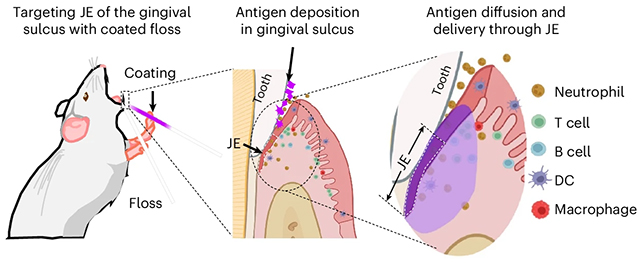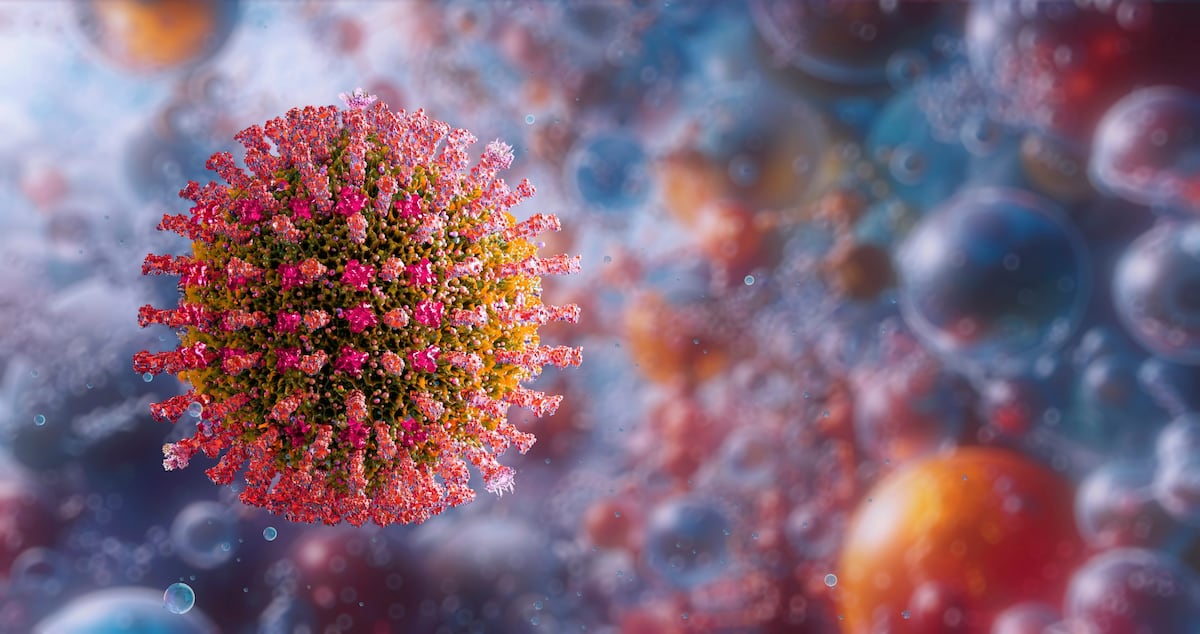A fear of needles is a common reason for avoiding vaccines, even among many adults. Now researchers have come up with a rather clever alternative: dental floss.
Led by a team from Texas Tech University, the researchers first identified an often overlooked surface in the mouth as an entry point for vaccines: the junctional epithelium (JE), which sits where the gums meet the teeth.
The JE is leaky by design, because it allows immune cells to move around and defend the oral cavity from bacterial attack. The researchers wondered whether this could also make this part of the mouth a suitable target for vaccines.
“We hypothesized that this leakiness of the JE could expedite the entry of vaccine antigens, and the abundance of immune cells in this microenvironment could elicit an adaptive immune response,” the researchers write in their recently published paper.
Related: Which Arm Gets Vaccinated Could Play a Role in Your Immune Response
Delivering medications to the JE is complicated by the tissue’s seclusion within the gumline, which is why it hasn’t really been considered as a potential location for introducing vaccines.
That’s where floss comes in, which is perfect for getting into tight spaces.
The researchers tested their hypothesis by coating dental floss with different types of vaccines and testing them on mice across a period of several weeks.

There were numerous encouraging indicators: strong immune responses were observed in the mouth and throughout the bodies of the mice, and the floss vaccine was effective in protecting mice against a later flu infection.
Further tests were conducted on human volunteers using dye rather than a vaccine, since clinical trials are still some way off. The amount of dye that reached the JE target via flossing was enough to suggest that this really could work in us too.
“These findings establish floss-based vaccination as a simple, needle-free strategy that enhances vaccine delivery and immune activation compared with existing mucosal immunization methods,” write the researchers.
It’s not the first time scientists have looked beyond the thorough cleaning job that floss does. Earlier this year research showed that floss could also be adapted to measure stress levels in the body, potentially giving doctors another useful diagnostic tool.
As well as being potentially less scary for those with a phobia of needles, floss-based vaccines would be easier to transport and store. Doctors and nurses wouldn’t be needed to administer them, and they could even be delivered in the post – a real advantage in the case of pandemics such as COVID-19.
Researchers have previously tried to deliver vaccines orally under the tongue and in the cheek, but not enough of the vaccine penetrates the tissue into circulation. While there’s still a lot of work to do with this new approach, the potential is clear.
“Due to drawbacks associated with injectable vaccines, such as pain and needle phobia, potential transmission of blood-borne pathogens from unsafe injection practices and the limited activation of mucosal immunity, there is a need for alternative approaches for vaccine delivery,” write the researchers.
The research has been published in Nature Biomedical Engineering.
Source link

